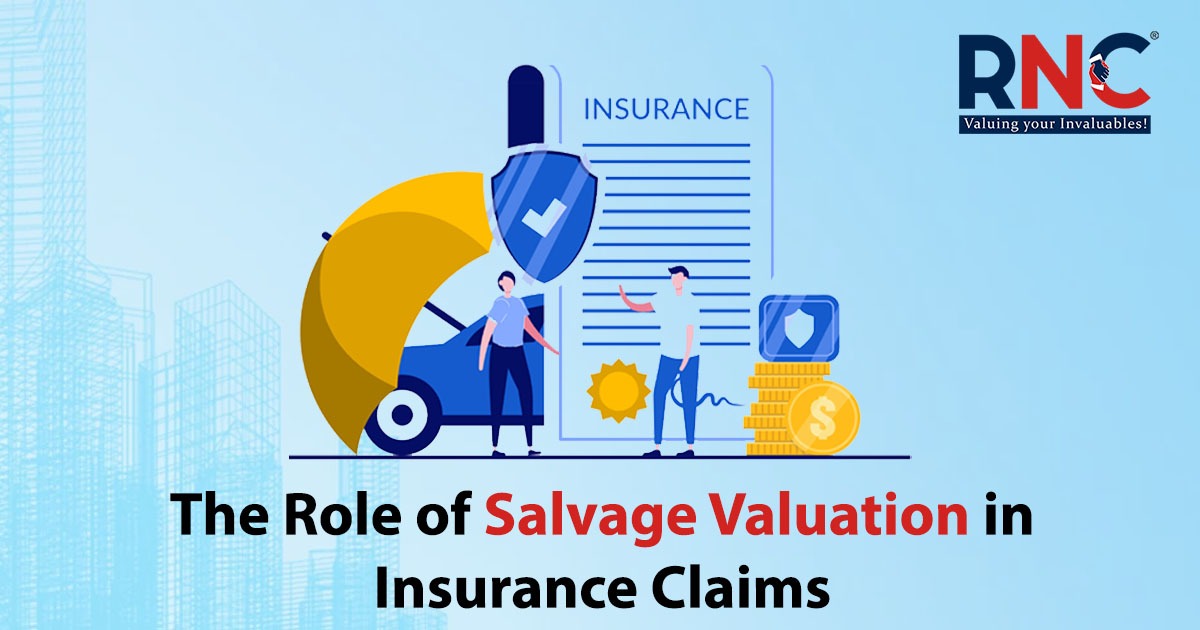
Salvage valuation determines the recoverable value of damaged or end-of-life assets during insurance claims. Accurate salvage valuation helps insurers and businesses calculate fair claim settlements, reduce disputes, and improve financial recovery. In 2025, independent salvage valuation is increasingly critical for high-value and industrial insurance claims.
Unexpected losses such as fire, flood, or industrial accidents can significantly disrupt business operations and financial stability. While insurance acts as a financial safeguard, the final claim payout often depends on a lesser-understood but critical component — salvage valuation.
Salvage valuation plays a key role in determining how much value can still be recovered from damaged or partially destroyed assets. When conducted accurately, it helps businesses reduce net losses, enables insurers to calculate fair settlements, and minimizes claim disputes.
This guide explains what salvage valuation is, how it is used in insurance claims, and why independent salvage valuation has become essential in 2025, especially for corporate and industrial assets.
Ensure fair insurance settlements with accurate Salvage Valuation.
Speak with our valuation specialists today
WHAT IS SALVAGE VALUATION?
Salvage valuation refers to the process of estimating the residual or recoverable value of an asset after it has been damaged, destroyed, or reached the end of its useful life. This value represents what can realistically be recovered through resale, recycling, or reuse.
In insurance and accounting contexts, salvage valuation ensures that assets are not treated as total losses when some economic value still exists. It is commonly applied to:
-
Industrial machinery
-
Manufacturing equipment
-
Commercial vehicles
-
Electrical and mechanical assets
-
Fire- or flood-damaged inventory
WHY SALVAGE VALUATION IS IMPORTANT
1. Accurate Insurance Claim Settlement
Insurance companies deduct salvage value from the replacement or reinstatement cost while calculating claim payouts. A realistic salvage valuation ensures neither party is disadvantaged.
2. Reduction in Claim Disputes
Disagreements over salvage value are a common cause of delayed settlements. Independent salvage valuation helps establish transparency and consensus.
3. Improved Financial Recovery
By identifying recoverable value, businesses reduce their net loss and improve post-loss financial stability.
4. Regulatory & Compliance Alignment
In 2025, insurers increasingly rely on professionally documented salvage valuation to comply with regulatory and audit expectations.
UNDERSTANDING SALVAGE VALUE
How Salvage Value Is Determined
Salvage value depends on multiple factors, including:
-
Extent of physical damage
-
Asset age and remaining useful life
-
Current scrap or resale market demand
-
Cost of removal, transportation, and disposal
-
Reusability of components
Independent valuers assess these variables to arrive at a realistic salvage estimate.
Role of Salvage Value in Depreciation
In accounting, salvage value affects depreciation calculations under methods such as straight-line or reducing balance, ensuring financial statements reflect true asset value.
Facing an Insurance Claim Dispute?
Uncertain salvage value can reduce your payout.
Get an independent Salvage Valuation report to:
-
Support fair claim settlement
-
Reduce insurer–claimant disagreements
-
Maximize post-loss financial recovery
ROLE OF SALVAGE VALUATION IN INSURANCE CLAIMS
Impact on Claim Payout
Insurers calculate claim settlements as:
Claim Amount = Replacement / Reinstatement Cost – Salvage Value
A higher or lower salvage value directly impacts the final payout.
Ownership of Salvaged Assets
After settlement, ownership of salvaged assets is typically transferred to the insurer, who may sell or auction them to recover part of the payout.
SALVAGE RECOVERY PROCESS
Step-by-Step Overview
-
Damage Assessment by surveyor or engineer
-
Independent Salvage Valuation by qualified experts
-
Agreement on Salvage Value between insurer and claimant
-
Disposal or Sale through authorized salvage buyers
-
Final Claim Settlement
Specialized salvage agents manage this process to ensure maximum recovery.
FINANCIAL & TAX IMPLICATIONS
-
Salvage valuation affects balance sheet asset values
-
Impacts depreciation and taxable income
-
Influences capital replacement planning
Accurate salvage valuation supports better financial forecasting and compliance.
STRATEGIES TO MAXIMIZE SALVAGE VALUE
-
Prompt damage assessment
-
Proper documentation of asset condition
-
Controlled dismantling and storage
-
Engagement of professional salvage valuers
-
Transparent negotiation with insurers
REAL-WORLD CLAIM EXAMPLE (2025)
A textile manufacturing unit in Maharashtra suffered fire damage amounting to ₹12 crore.
-
Insurer estimated salvage value: ₹1.8 crore
-
Claimant estimate: ₹1.1 crore
An independent salvage valuation concluded a fair value of ₹1.35 crore, enabling faster settlement and eliminating prolonged dispute.
Investor Insight: Accurate salvage valuation reduces litigation risk and settlement delays.
CONCLUSION
Salvage valuation is no longer a secondary consideration in insurance claims — it is a critical component of financial recovery and risk management. In high-value and industrial claims, professional salvage valuation ensures fair settlements, faster resolution, and improved financial outcomes.
Businesses that proactively adopt independent salvage valuation practices are better equipped to handle unexpected losses and protect long-term financial stability.
eed Expert Salvage Valuation Support?
Protect your claim value and avoid unnecessary disputes with professional Salvage Valuation.
At RNC Valuecon LLP, our certified valuation experts provide:
-
Independent salvage valuation for insurance claims
-
Accurate recovery estimates for damaged assets
-
IRDA-aligned, insurer-accepted valuation reports
-
Faster claim settlement support for industrial and corporate losses
Book a Salvage Valuation Consultation and ensure your insurance claim reflects the true recoverable value of your assets.
FAQs
1. What is salvage valuation in insurance?
Salvage valuation determines the recoverable value of damaged assets during insurance claims to calculate fair settlements.
2. Who conducts salvage valuation?
Independent valuers, licensed surveyors, or specialized salvage valuation firms conduct it.
3. Is salvage valuation required for all claims?
Not mandatory for all claims, but critical for high-value, industrial, and total-loss cases.
4. How does salvage valuation affect claim payout?
The salvage value is deducted from replacement cost, directly impacting the final payout.
5. Is salvage valuation regulated in India?
Yes, IRDA guidelines require licensed surveyors and transparent valuation practices.

About the author:
Sahil Narula
Sahil Narula is the Managing Partner at RNC Valuecon LLP and a Registered Valuer with IBBI. He brings over a decade of experience in Valuation Services, Corporate Finance, and Advisory, having led numerous complex assignments under the Insolvency & Bankruptcy Code, 2016, Mergers & Acquisitions, Insurance, and Financial Reporting.
He is a regular speaker at national forums (ASSOCHAM, CII, ICAI, IBBI, Legal Era) and currently serves as Co-Chairman of ASSOCHAM’s National Council on Insolvency & Valuations and a member of CII’s Task Force on Insolvency & Bankruptcy.
🤝Connect with Sahil on LinkedIn.
